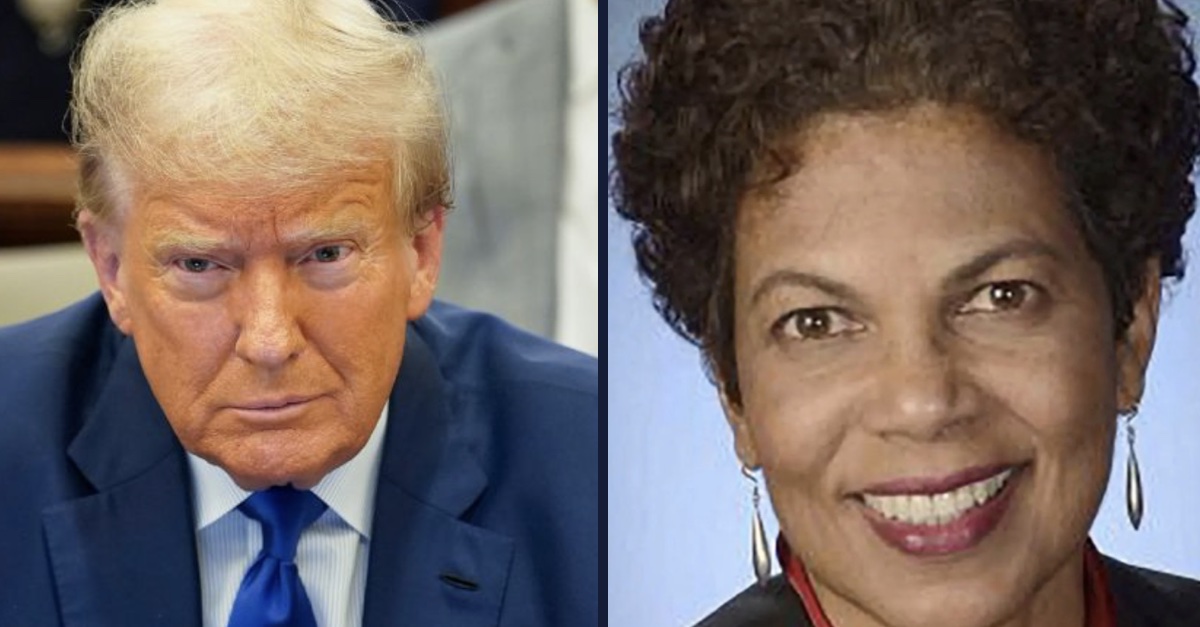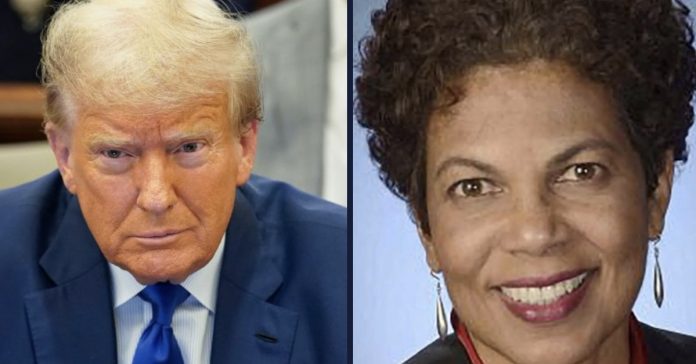
Left: Donald Trump (AP Photo/Seth Wenig, POOL); Right: U.S. District Judge Tanya Chutkan (Court photo)
The Washington, D.C., judge overseeing former president Donald Trump‘s election subversion case there denied his effort to subpoena members of Congress and others for various documents related to the House Select Committee investigation of the Jan. 6 attack.
Trump’s attorneys want to force seven members of the federal government to turn over what has been described, variously, as “missing records” and “missing materials.” These documents, the defense alleges, should be – but are not – in the committee’s archives.
In a late Monday afternoon opinion and order, U.S. District Judge Tanya Chutkan said the 45th president “has not met his burdens.”
The subpoena requests would have been sent to the Archivist of the United States at the National Archives and Records Administration (NARA), the clerk of the House, the current Committee on House Administration, Special Counsel to the President Richard Sauber, General Counsel of the Department of Homeland Security Johnathan Meyer, Rep. Barry Loudermilk; a Republican from Georgia, and Rep. Bennie Thompson; a Democrat from Mississippi.
Trump’s denied motion used the term “missing materials” as a catch-all for five other, general, types of documents.
Those types included records and communications about the transfer, retention, archiving, or destruction of Jan. 6 Committee materials, records and communications about the loss of such materials, any communications with the DOJ or other enforcement agencies related to the materials, records related to “any accommodations or agreements” with the executive branch about the alleged materials, and any other documents that in “any way” pertain to the missing materials.
Trump’s subpoena request was filed under Rule 17 of the Federal Rules of Criminal Procedure – a rule that has been widely litigated and produced a large body of case law. In denying the request, Chutkan cited some of the more familiar language often used to shut down prospective subpoenas.
“Rule 17(c) subpoenas are not appropriate where the moving party seeks materials ‘procurable reasonably in advance of trial by exercise of due diligence,’ or [that] operate ‘as a general ‘fishing expedition,”” the order reads. “Courts must be careful that rule 17(c) is not turned into a broad discovery device, thereby undercutting the strict limitation of discovery in criminal cases.”
Trump’s request, however, is not completely generalized. The court notes that the former president’s motion specifically asks for materials mentioned in letters sent by Sauber, Meyer, and Thompson.
The court order outlines several subcategories of the so-called “missing materials” requested:
[A] video recordings or [B] other transcriptions of witness interviews, [C] intelligence and other law enforcement information available to the Secret Service, [D] records identifying witnesses, and [E] other information the Select Committee deemed private or operational details pursuant to agreements with the White House and Department of Homeland Security. If the materials returned to the White House and Department of Homeland Security encompass [F] more materials than described in the letters, [“Missing Materials”] also includes those materials.
But, the judge says, those references are specific to the point of being more or less moot.
“According to the letters [Trump] cites, however, the Select Committee did not actually send any material under most of those subcategories,” Chutkan’s order continues.”[T]he Sauber and Meyer letters describe transmitting only written transcriptions of witness interviews, not any other records. And the Thompson letter’s first footnote only identifies written transcripts of interviews, along with corresponding video recordings.”
Overall, the court says, only two of the general sub-categories mentioned in the motion are relied on by the three letters. One sub-category of documents, Chutkan notes, is readily available and has already been provided to the defense.
The second sub-category of documents requested are videos of the Select Committee interviews that are not particularly relevant – because their transcripts have, again, already been provided to the defense.
“He has not sufficiently justified his requests for either the ‘Missing Materials’ themselves or the other five categories of documents related to them,” the order reads.
Have a tip we should know? [email protected]

